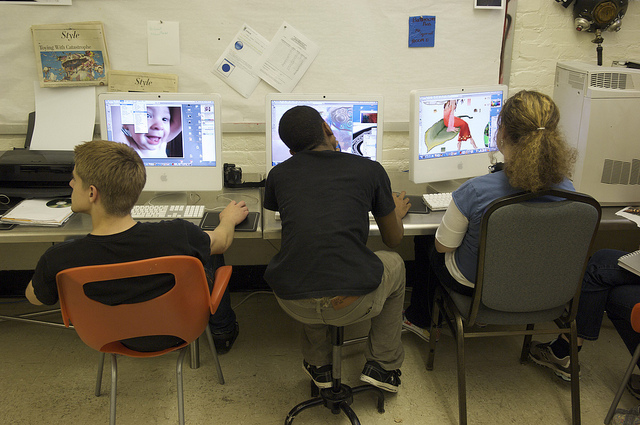What You Need to Know About the Conditions of Local Funding

It is important for educators and parents/guardians to understand the funding conditions of their local school district(s) because each condition impacts the amount and continual financial support provided to each school. In this blog the details of local funding conditions will be observed in order to bring awareness for the type of education your students may be receiving within their school.
Many states label schools under their jurisdiction and allot either descriptors or grades to them. Thus, schools can be characterized as “Excellent,” “Above Average,” “Fair,” “Poor,” or “Unacceptable,” receive a letter grade such as “A,” “B,” “C,” “D,” or “F,” or be labeled using other types of systems. To meet its responsibility for openness and transparency, the state has an obligation to publish all such designations, whether in local or statewide news sources.
Schools that consistently receive poor or failing grades can be taken over by the state department of education. In some instances, state control of schools results in dismissal or reassignment of both administrators and teachers. Clearly, teachers are being held directly accountable for the achievement (or nonachievement) of the students in their charge. Student performance is looked at as a reflection of both the teacher’s and the school’s effectiveness. When choosing a school for their child, parents can use the schools’ designation (e.g., “Excellent” or “Fair”) as part of their decision. The potential enrollment of schools is impacted by the publication of the schools’ grade, and school funding can also be affected because enrollment is one of the measures used to determine the funds a school can receive.
Differences in the amount of money for education gained through property taxes mean the difference between getting a good education that enables students to become productive members of society and failing to do so. For parents and teachers alike, this can be a source of frustration. Teachers sometimes can’t obtain required materials, have to teach in buildings where the environmental conditions are not conducive to learning, and have to deal with social issues that are more prevalent in less-affluent areas, such as crime, violence, drug and alcohol abuse, and the presence of gangs.
On the other hand, it can be very difficult to redistribute and reallocate funds for education, because wealthier areas may not be happy with their funds being taken away from their schools to finance schools in poorer districts. This approach has been termed the Robin Hood effect, where money is taken from wealthier areas and reallocated for spending in poorer areas of the state. The objective is to allow all students to receive the same access to education, thereby bringing about equity in the education received by all students in the state. This does not, however, always have the desired effect.
Redistribution of funds from wealthier areas may, for various reasons, cause a decline in the quality of education, teaching, or access to resources in the wealthier areas without bringing about a similar increase in the same factors at the recipient school in the poorer area. This creates an overall decrease in the quality of education offered to all students in the district. Several states, including Arizona and New Mexico, have a system in which all taxes go into a central fund and are then reallocated according to a complex “equalization formula.”
Some groups argue that instead of focusing on educational equity, districts and local administration should be focusing on educational adequacy. Unfortunately, adequacy is a term that is ill-defined because there are no prescribed criteria to define how you determine whether or not education is adequate. It could mean that you expect that all high school graduates are capable of attending university-level instruction, whether they choose to or not.
It could also mean that you expect that high school graduates are competent in handling life outside of the school environment, which may not focus on higher education at all. Alternatively, it could simply mean that all students are required to pass all standardized, state-level testing requirements, without placing any focus on future objectives. It is unlikely that, without a clear definition of educational adequacy, any further remediation of funding disparities between wealthy and poorer areas will lead to a solution that is beneficial to all.
It’s essential that schools adapt within a fast-changing economy, but our system still arranges funding in an inequitable manner. Those realities severely limit our educational system’s ability to effectively and accountably use resources in planned ways. Critics of increased spending on education routinely highlight nationwide cases of misspending of major increases in funding that provided little or no positive outcomes for student learning. Without adjustments in the distribution of resources, their use, and accountability, Americans may end up with a more expensive, though not necessarily more efficient, public education system.
Our children require and deserve a proper education, and we must strive to provide them with the type of education that they deserve. The money available for schools must be used in the most effective manner possible. And most important, we must understand the deficiencies in our educational funding system and strictly forbid placing blame—which rarely serves to encourage cooperation. Rather, we must demonstrate accountability for our situation and fulfill our responsibility to our children.
Funding is crucial for the support, survival, and overall level of success for school districts. Therefore take time to review your jurisdiction and the functionality of funding.






